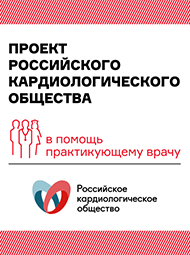Perioperative statin therapy confers improved outcomes in patients after CABG
Likely because of pleiotropic effects including anti-inflammation, perioperative statin therapy is associated with improved outcomes in patients after CABG, according to a review published in The Annals of Thoracic Surgery.
Amr F. Barakat, MD, and colleagues conducted a literature review of articles pertaining to statin therapy in patients undergoing CABG.
Anti-inflammatory role
The researchers found that the anti-inflammatory property of statins, much more than their cholesterol-lowering role, appears to explain their benefits seen in patients who underwent CABG.
“The main pleiotropic effect of statins is the anti-inflammatory role that was demonstrated in clinical trials by a significant reduction in serum levels of C-reactive protein, usually within 14 days of initiation of statin therapy, independent of serum LDL levels,” Barakat, from the department of medicine at Cleveland Clinic, and colleagues wrote. “This reduction was proven to be associated with delayed progression of atherosclerosis and improved [CV] outcomes.” The mechanism behind the anti-inflammatory role of statins appears to be upregulation of nitric oxide, they wrote.
One trial found that on day 14 after CABG, patients assigned aspirin plus atorvastatin on the day after surgery had better inflammatory response, endothelial cell function and blood coagulation cascade than those assigned aspirin alone; another found that perioperative use of high-dose statins (but not low-dose statins) plus ACE inhibitors attenuated the postoperative systemic inflammatory response commonly seen in patients who underwent CABG; and both have been confirmed by subsequent studies, they wrote.
Evidence for better outcomes
A number of studies have found that perioperative statin therapy is associated with reduced all-cause mortality after CABG, the researchers wrote. However, although statins have been shown to decrease MI in patients who underwent PCI or a noncardiac operation, the effect has not been demonstrated in CABG.
Preoperative atorvastatin has been shown to decrease postoperative atrial fibrillation in patients with CABG, but the results have been inconsistent for rosuvastatin (Crestor, AstraZeneca), they wrote.
“This discrepancy can be partly explained by the difference in pleiotropic effects among individual statins ... favoring lipophilic statins such as atorvastatin and simvastatin over the more hydrophilic ones,” Barakat and colleagues wrote.
Most studies of statins and post-CABG stroke have found a beneficial effect from statins, but some have not, and “such evidence may be a reflection of decreased incidence of postoperative AF in the statin group,” they wrote.
Evidence for a reno-protective effect of statins in patients who underwent CABG is mixed, mostly based on observational studies, and most consistently seen in younger and lower-risk patients, according to the researchers.
Statin use appears to be associated with reduced length of hospital stay after CABG, likely due to a reduced rate of postoperative complications, they wrote.
Known statin-related adverse effects do not appear to be a factor in patients undergoing CABG, and statins are underused by candidates for CABG, the researchers wrote.
“Based on the current evidence, [perioperative statin therapy], particularly atorvastatin and simvastatin, is associated with improved postoperative outcomes in CABG patients,” Barakat and colleagues concluded. “Attenuation of [systemic inflammatory response] and reduction in the risk of postoperative AF and perioperative mortality seem to have the most robust evidence, whereas further [randomized controlled trials] are needed to confirm the benefit for other outcomes. Furthermore, the evidence suggests that the benefit outweighs the questionable increased likelihood of statin-induced myopathy in the setting of operation.” – by Erik Swain
Source: www.healio.com






